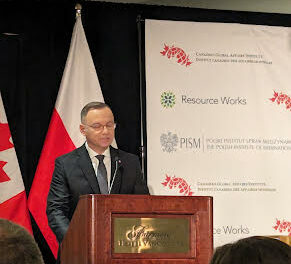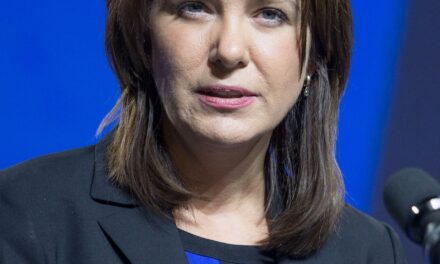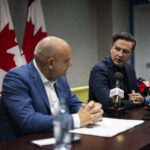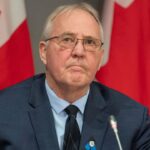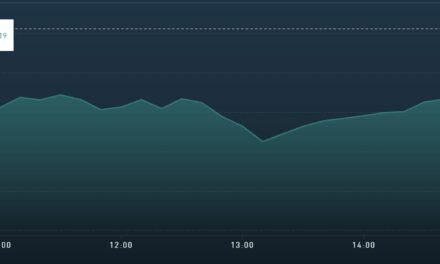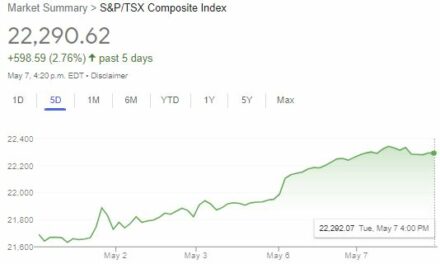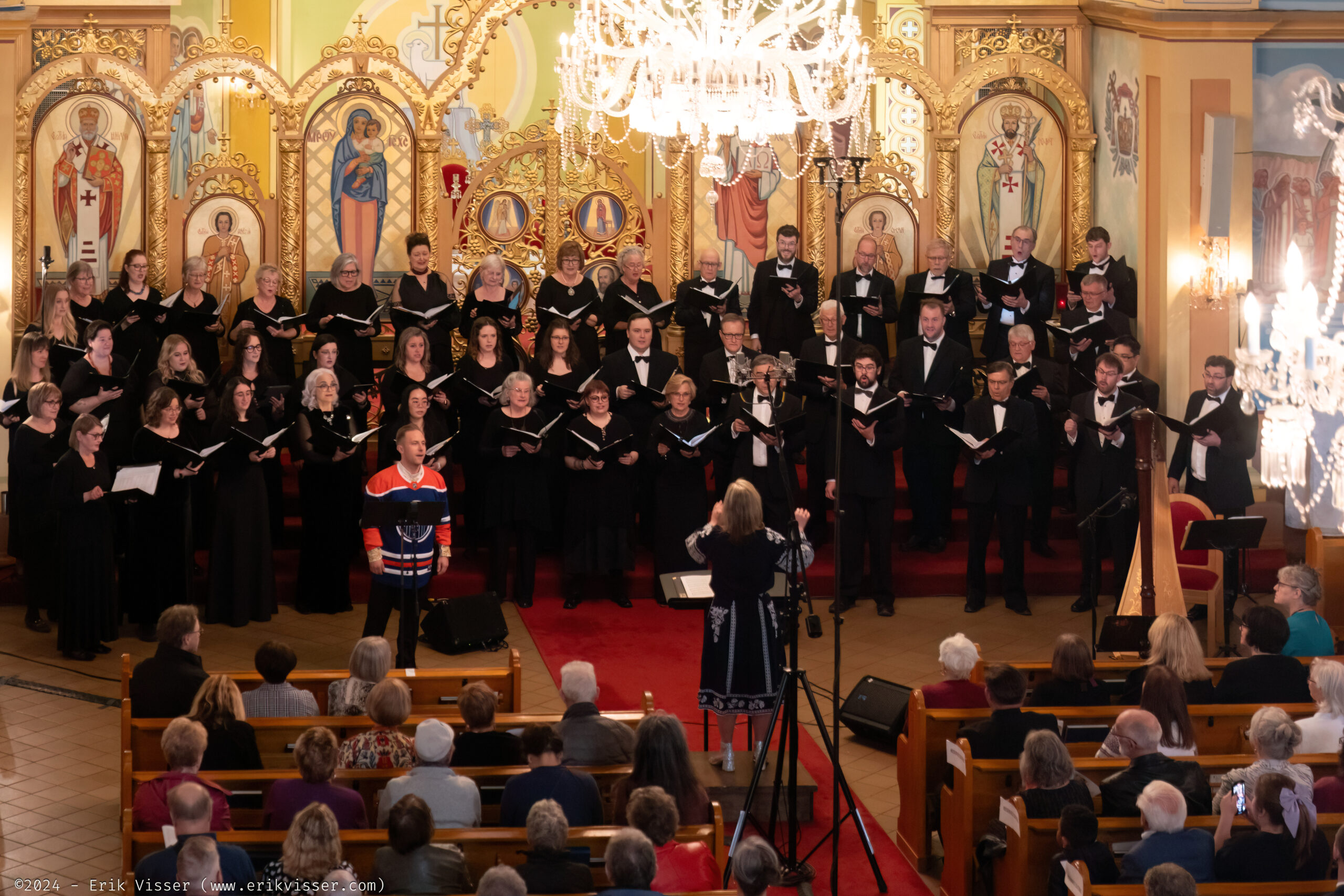Finance Ministers and Central Bank Governors pose for the family picture at the G7 Finance Ministers meeting in Stresa, northern Italy, Friday, May 24, 2024. (AP Photo/Antonio Calanni)
Marco Levytsky, Editorial Writer.
After a three-day meeting in Stresa, Italy, G7 finance ministers on May 25, announced “progress” but no concrete deal on how to use future income from frozen Russian assets to help Ukraine, according to a draft statement seen by Reuters and AFP. “We are making progress in our discussions on potential avenues to bring forward the extraordinary profits stemming from immobilized Russian sovereign assets to the benefit of Ukraine,” the draft statement said.
In a press conference, Italian Finance Minister Giancarlo Giorgetti, who hosted the meeting, said there were still “significant technical and legal issues” to deal with, but the aim is to present a proposal “defined in all its dimensions” to G7 leaders ahead of a summit in Puglia, Italy, on June 13-15. “It is not an easy task, but we are working on it,” he added.
At issue are about US$300 billion in Russian state assets, such as major currencies and government bonds, which were frozen shortly after Moscow invaded Ukraine, plus another $30 billion in oligarch assets. These include offshore bank accounts, yachts, private jets, and luxury properties that have been linked to Russian oligarchs and officials with close ties to dictator Vladimir Putin. But this is just a drop in the bucket. The US think tank the Atlantic Council estimates that Russians have about $1 trillion in “dark money” hidden abroad. One-quarter of this amount is allegedly controlled by Putin and his close associates.
However, G7 countries are divided on how to use these assets to help Ukraine. The vast majority of Russian state assets abroad are held in the European Union, with the Belgium-based financial services company Euroclear controlling two-thirds of the total amount. The U.S. has proposed seizing Russian assets outright in accordance with its Rebuilding Prosperity and Opportunity for Ukrainians, REPO Act, which was passed on April 20. This would authorize President Joe Biden to confiscate the Russian assets frozen in U.S. banks and transfer them to a special fund for Ukraine. The U.S. position is supported by Canada and the United Kingdom.
The EU has been more hesitant, fearing legal and fiscal pitfalls of confiscation. Instead, they plan to use the interest accumulating on the assets, but that’s only around $3 billion a year — about one month’s financing needs for the Ukrainian government. As Ukraine’s Justice Minister Denys Maliuska noted, while it is a “good step,” the figure is “almost nothing” in the context of the full-scale war. In fact, it is woefully inadequate. EU leaders must realize that only a Ukrainian victory will prevent Russia from further imperialist expansionism, which will affect their security. And even the total of $300 billion that has been frozen will not cover the cost of rebuilding Ukraine, which has already been conservatively estimated at more than $500 billion by the World Bank. And that only includes the devastation caused to date. This sum will grow exponentially as Russia’s brutal assault on civilian lives and infrastructure continues.
In a May 21,Time Magazine article entitled “It’s Time to Direct Russia’s Frozen Assets to Ukraine” co-authors Jeffrey A. Sonnenfeld, Senior Associate Dean for Leadership at Yale University, John E. Herbst, former U.S. Ambassador to Uzbekistan and Ukraine and William B. Taylor, former U.S. Ambassador to Ukraine pointed out that Harvard Professor Laurence Tribe published a compelling 199-page legal treatise on why international law supports seizing Russia’s frozen assets, winning the endorsements of hundreds of top international law scholars across the world. In it they stated:
“European officials readily admit that international law does not stand in the way of seizing these frozen assets. Rather, their key concerns are much more mundane and political in nature—namely, the impact of such a move on the euro’s status as a reserve currency, the impact on Europe’s abilities to attract future global capital flows, and the disproportionate burden borne by Europe relative to the U.S., as encapsulated by European Central Bank chair Christine Lagarde.
“These concerns are dramatically overstated, as hundreds of leading economic and governmental voices have affirmed. Simply put, seizing Russian’s assets will hardly trigger financial crises or economic disasters. Foreign investors have few viable reserve currencies to turn to outside of the U.S. dollar and euro, with even the Chinese renminbi still subject to strict capital controls, meaning the seizure of Russian assets will hardly have any impact on Europe’s ability to attract and retain capital flows. And global business and financial leaders overwhelmingly recognize the one-off nature of Russia’s invasion of Ukraine, so the seizure of Russian assets would not set off any chain reaction.”
So, what can Canada do? Not much in quantifying terms, but a lot in qualitative. Just as we have few weapons to offer compared with the U.S. and E.U. we hold a very small percentage of Russian assets. But we do have a certain moral influence as an “honest broker.” We can lead by example as we have done previously, the most notable examples being the lead we took in recognizing Ukrainian independence in 1991 and providing over 500 electoral observers in 2004.
Canada took a major step forward on this issue by passing Bill C-19, which allowed the government to seize the assets of individuals and entities on our sanctions list almost two years ago. And on December 19, 2022, Mélanie Joly, Minister of Foreign Affairs, announced that Canada will seize and pursue the forfeiture of US $26 million from Granite Capital Holdings Ltd., a company owned by Roman Abramovich — a Russian oligarch sanctioned under the Special Economic Measures (Russia) Regulations. Since then, nothing else has been reported — neither about the Abramovich case nor any other forfeiture action. A much more aggressive approach must be taken to maintain our credibility.
The other action that must be taken is the rapid approval of Senate Bill S-278, introduced by Ontario Independent Senator Ratna Omidvar, to amend the Special Economic Measures Act (SEMA) to allow for “a legal pathway to seize and repurpose state assets, including central bank reserves, of perpetrators that breach international peace and security”.
Therefore, Canada again has to lead the way and persuade other countries, especially EU members, of the desperate need for resolute action. As Harvard Professor Tribe noted, “There can be no justification for halfway measures, let alone for doing nothing while Ukraine is destroyed. Inaction is an illusion: it would represent a cowardly decision to appease and to encourage further aggression around the world.”
Share on Social Media




